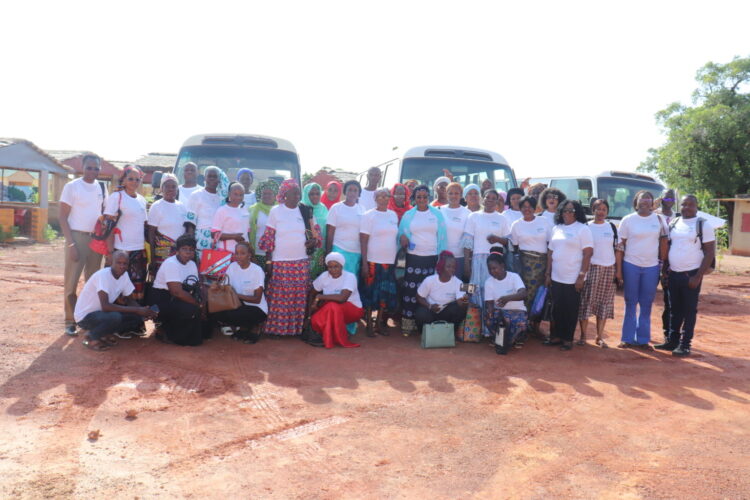Agriculture in West Africa plays a vital role in the regional economy, with over 60% of the population directly relying on this sector for their livelihoods. However, despite its importance, agriculture is marked by glaring inequalities. Women, who make up nearly 80% of the labor force in food production, often remain marginalized, and their contribution is largely overlooked. West Africa is a region rich in arable land, stretching from the Atlantic coasts to the shores of the Sahel. Millions of small family farms are the backbone of this sector, with women working at all levels of agriculture, from planting to harvesting, processing to marketing.
Yet, despite their crucial role, these women face numerous challenges including gender discrimination, lack of access to education and resources, and vulnerability to climate change. To overcome these challenges, a movement is underway.
From July 24 to 27, 2023, the “Women, Economy, and Resilience” Forum was organized in Koubri, Burkina Faso. Supported by the PARFO, PROLOCAUX, and FO4ACP programs, this regional forum gathered 55 participants from 13 national platforms of the Network of Peasant Organizations and Agricultural Producers of West Africa (ROPPA), shedding light on the crucial contribution of women to the region’s agricultural economy.
The forum brought together various representatives of cooperatives and agricultural organizations, joined by technical and financial partners such as the European Union and the World Bank. The purpose of this gathering was to engage in dialogue on the economic integration of women in the agricultural sector and the strengthening of family farms’ resilience to environmental and economic shocks.
Three regional programs were at the heart of the discussions. The first aims to strengthen women’s economic activities through training and capacity building. The second focuses on organizing value chains, helping women access better markets, and get better prices for their products. The third program aims to increase the consumption of local products, by promoting goods from family agriculture and raising public awareness of the importance of supporting the local economy.
Participants shared their experiences and successes, showing how they have managed to create value and generate income despite the challenges. Debates highlighted the importance of collaboration between organizations and the need for an environment that supports female entrepreneurship.
The forum also allowed an assessment of changes within cooperatives and the development of strategies to strengthen their resilience. Emphasis was placed on the need to strengthen management and leadership skills, diversify economic activities, and improve access to financial services.
Furthermore, discussions focused on the importance of local consumption. A plan was drafted to support initiatives aimed at promoting local products and helping family farms resist economic and environmental pressures.
In concrete terms, the Forum has put in place measures to support women in agriculture. With the help of various partners, ROPPA was able to provide tangible assistance to 30 cooperatives, including training, equipment, and agricultural inputs.
The Forum concluded by outlining a future vision for the sector, with participants expressing a strong commitment to continue working together and expanding the programs to include even more women in the regional agricultural economy.
This Forum has created a momentum that has the potential to transform the lives of many women in agriculture. The discussions and actions that emerged from this gathering are a decisive step toward a future where women will play a central role in the economic development and resilience of the agricultural sector in West Africa.
The successes and visions shared at this forum serve as an example for other regions of the continent, showing how cross-sectoral cooperation, networking, and knowledge sharing can generate tangible results. Women in agriculture are now at the forefront, leading a major transformation in the agricultural sector.
The success of this forum bears witness to the collective commitment to transforming this vital sector, and it is a bold step towards a future where women will not only be pioneers but leaders. This is not just a victory for women, but also for the entire agricultural community and society at large. The road is still long, but the “Women, Economy, and Resilience” Forum marks a significant turning point in this march towards a more equitable and prosperous future.

